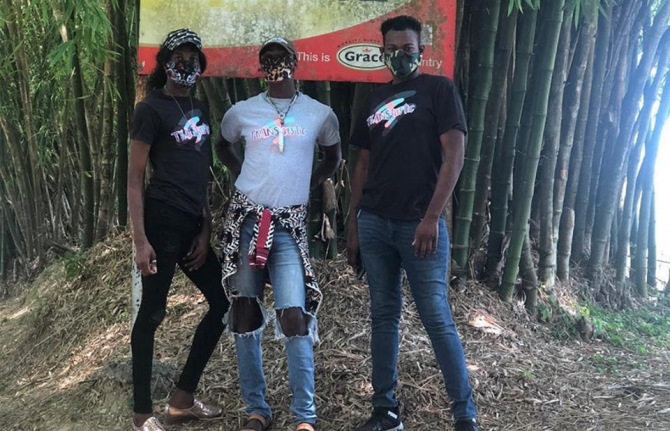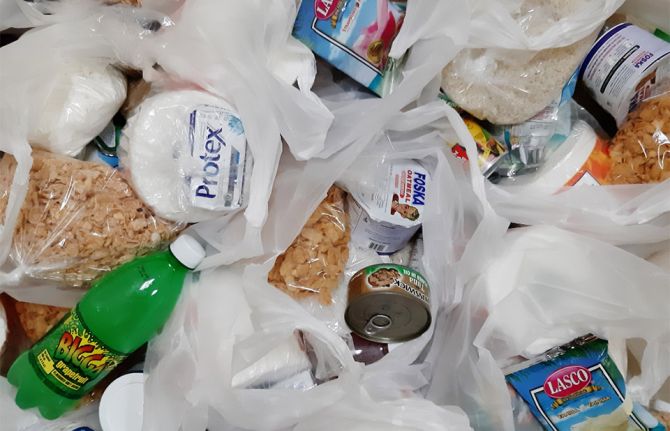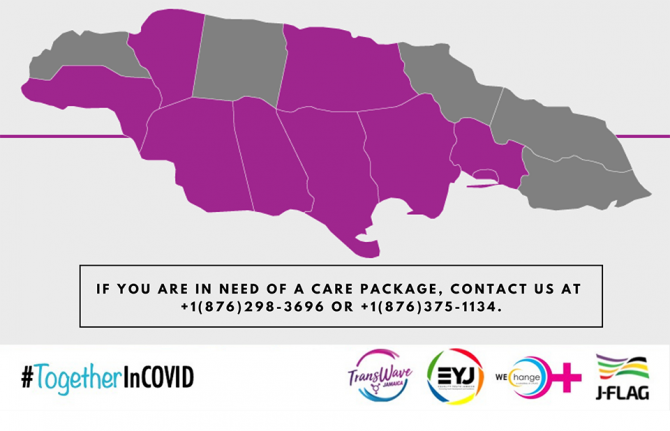



Feature Story
How the Jamaica transgender community is surviving COVID-19
24 September 2020
24 September 2020 24 September 2020Rose Clark (not her real name) is a 21-year-old transgender woman living in Kingston, Jamaica. Through sex work she’d been able to afford the basics—food, clothes and a small apartment.
Another transgender woman, Carla John (not her real name), worked in a hotel bar on Jamaica’s north coast. It allowed her to live independently of an unsupportive family since she was 19 years old.
COVID-19 upturned their lives. A night-time curfew made it impossible for Ms Clark to work. She was evicted in May. Ms John’s employer shut down operations in April and sent staff home. Since then she’s been living with hostile relatives.
These two are not alone. The Equality Group—a coalition of civil society organizations serving lesbian, gay, bisexual and transgender (LGBT) people in Jamaica—conducted an online survey to gauge the impact of COVID-19 on the LGBT community. It found that a quarter of respondents had lost their job, while three in 10 were unable to pay for food, rent or utilities.
“There’s been a sharp increase in homelessness,” reported Renae Green, Associate Director of Policy and Advocacy at Transwave. “The community has experienced major loss of income and people are unable to pay for housing, food and other basic amenities.”
The transgender community as a whole has several layers of vulnerability—low access to education and employment, small or non-existent family safety nets and high vulnerability to gender-based violence. These are the underlying causes for a 2018 study finding that half (51%) of transgender women in Jamaica were living with HIV.
Transwave has collaborated with WE-Change, JFLAG and Equality Youth to run a COVID-19 hotline. It also provided care packages, including non-perishable food items and toiletries, to people in need. Already more than 100 transgender people have benefitted.
Critically, a Trans Emergency Fund was established to raise money to cover or subsidize applicants’ rent for short periods. Both individuals and organizations have made donations. And Transwave manages a virtual support group, providing much needed emotional solidarity during this trying time.
If anything, COVID-19 has intensified Transwave’s ongoing efforts to shine a light on the hidden issues facing one of Jamaica’s most marginalized groups.
“We are not included in decision-making processes,” Ms Green said plainly. “Decision-makers barely talk about us. We keep having to say “remember trans people”.”
UNAIDS Jamaica provided financial support that was used to ensure that Transwave had personal protective equipment and to supplement care package supplies. The office has also made certain that transgender issues are included in the coordinated HIV civil society response to COVID-19.
This fresh pandemic response has unfolded alongside Transwave’s 2020 strategic planning work, which has been supported by UNAIDS and the United Nations Population Fund.
“There is an urgent advocacy agenda for transgender people that includes all the social determinants to health and human rights,” said Manoela Manova, the UNAIDS Country Director for Jamaica.
“COVID-19 has laid bare just how vulnerable people are when they do not have equitable access to opportunities, justice and health care,” added UNAIDS Jamaica’s Community Mobilization Adviser, Ruben Pages. “That’s why it’s so important and inspiring that Transwave has continued its core work through all this.”



